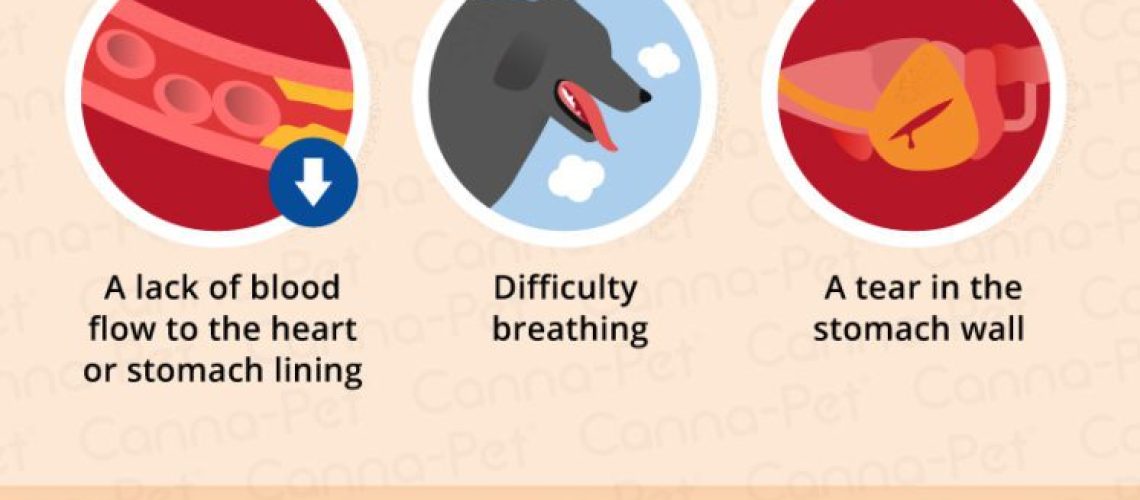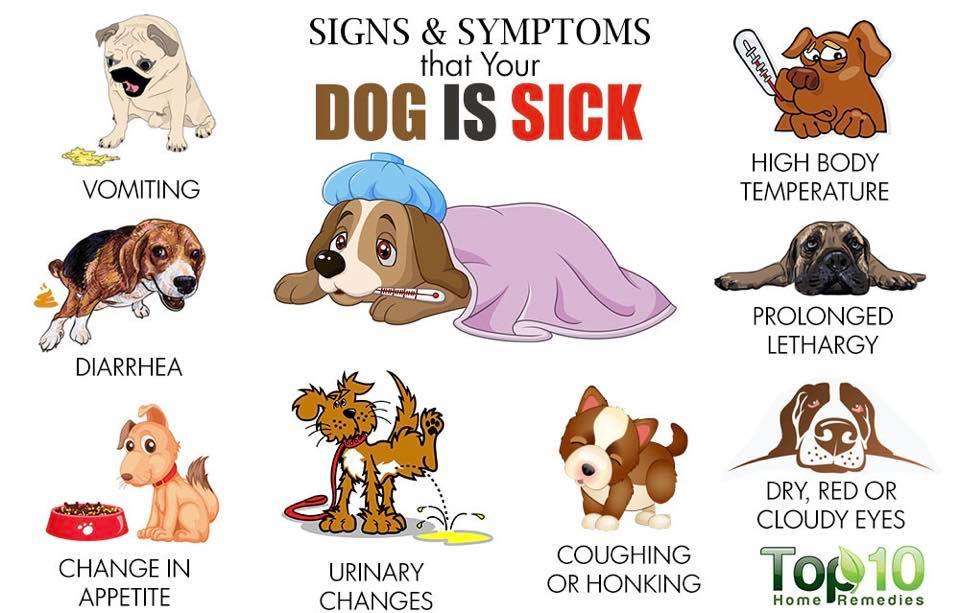Bloat in puppies refers to a potentially life-threatening condition that causes their stomach to become twisted or distended. This introduction will explore the causes, symptoms, and treatment options for this serious health issue affecting young dogs.
Key Takeaways:
- Bloat in puppies is a life-threatening condition that requires immediate veterinary attention.
- Puppies with deep-chested breeds are more prone to developing bloat.
- Feeding multiple small meals throughout the day can help prevent bloat in puppies.
- Avoid vigorous exercise or playtime immediately after meals to reduce the risk of bloat.
- Knowing the signs and symptoms of bloat, such as restlessness, unproductive retching, and a distended abdomen, can help save a puppy's life.
Understanding Bloat in Puppies: What You Need to Know
Bloat is a serious condition that can affect puppies. It happens when their stomach fills up with gas, fluid, or food and becomes swollen. This swelling can put pressure on other organs and cause them to shift, leading to potentially life-threatening complications. Understanding the basics of bloat is important for every puppy owner.
What Causes Bloat in Puppies?
Bloat can happen for various reasons, but there are some common triggers to be aware of. One of the main causes is eating too quickly or overeating. When puppies gobble down their food too fast, they swallow air along with it, which can contribute to bloating. Another trigger is exercising vigorously right before or after a meal. Stressful situations or changes in routine can also increase the risk of bloat.
Common Triggers for Bloat:
- Eating too quickly or overeating
- Vigorous exercise before or after meals
- Stressful situations or changes in routine
Recognizing the Symptoms of Bloat in Puppies: What to Look Out For
Knowing how to recognize the symptoms of bloat is crucial for early intervention and treatment. If your puppy shows any signs of distress, it's important to act quickly and seek veterinary care.
Common Symptoms of Bloat:
- Restlessness and pacing
- Unproductive attempts to vomit
- Swollen abdomen that feels tight
- Rapid breathing and increased heart rate
- Pale gums or tongue
- Weakness or collapse
If you notice any of these symptoms in your puppy, it's important to contact your veterinarian immediately. Bloat is a medical emergency that requires prompt attention.
Breeds Prone to Bloat in Puppies: Which Dogs Are at Higher Risk?
While any dog can develop bloat, certain breeds are more prone to this condition. It's important for owners of these breeds to be aware of the increased risk and take preventive measures.
Breeds Prone to Bloat:
- Great Danes
- Saint Bernards
- Weimaraners
- Standard Poodles
- German Shepherds
- Doberman Pinschers
If you own one of these breeds, it's essential to discuss preventative strategies with your veterinarian. They can provide guidance on feeding habits, exercise routines, and other measures that may help reduce the risk of bloat.
Suspecting Bloat in Your Puppy? Here's What to Do
If you suspect that your puppy may have bloat, it's crucial to act quickly. Time is of the essence when dealing with this condition. Here are some steps you should take:
- Contact your veterinarian immediately and explain the situation.
- Avoid giving anything by mouth, including food or water.
- Keep your puppy calm and comfortable while waiting for veterinary advice.
- If directed by your veterinarian, transport your puppy to the nearest animal hospital as soon as possible.
Remember, bloat is a serious condition that requires immediate veterinary attention. Don't hesitate to seek help if you suspect your puppy may be experiencing this medical emergency.
Preventing Bloat in Puppies: Tips to Keep Your Pet Safe
Prevention is key when it comes to bloat in puppies. By implementing certain strategies, you can reduce the risk of this potentially life-threatening condition.
Tips for Preventing Bloat:
- Feed your puppy smaller, more frequent meals instead of one large meal.
- Avoid elevated feeders, as they may increase the risk of bloat.
- Ensure your puppy eats slowly by using puzzle feeders or food-dispensing toys.
- Avoid vigorous exercise right before or after meals; instead, schedule exercise sessions at least an hour before or after feeding.
- Keep stress levels low and maintain a consistent routine for your puppy.
By following these preventative measures, you can help keep your puppy safe from bloat and promote their overall digestive health.
Diagnosing and Treating Bloat in Puppies: What Veterinarians Do
If you suspect your puppy has bloat, it's essential to seek veterinary care immediately. Veterinarians have the expertise and tools necessary to diagnose and treat this condition effectively.
Diagnosis of Bloat:
Veterinarians typically diagnose bloat based on physical examination findings, including a swollen abdomen and other symptoms. They may also use diagnostic imaging techniques such as X-rays or ultrasounds to confirm the diagnosis and assess the severity of the condition.
Treatment of Bloat:
The treatment for bloat often involves a combination of medical and surgical interventions. The veterinarian may attempt to relieve the pressure in the stomach by passing a tube through the mouth or nose, allowing the gas and fluid to escape. In severe cases, emergency surgery may be necessary to correct the twisted stomach and prevent further complications.
It's important to remember that bloat is a serious condition that requires professional veterinary care. Always consult with your veterinarian for an accurate diagnosis and appropriate treatment plan.
Potential Long-Term Effects of Bloat in Puppies: What You Should Know
Bloat can have long-term effects on puppies, even if they receive prompt treatment. While some puppies recover fully after experiencing bloat, others may face complications that require ongoing management.
Possible Long-Term Effects:
- Damage to organs due to lack of blood flow
- Increased risk of future episodes of bloat
- Digestive issues such as food intolerance or sensitivity
- Weight loss or difficulty maintaining a healthy weight
- Anxiety or fearfulness related to the traumatic experience
If your puppy has experienced bloat, it's important to monitor their health closely and discuss any concerns with your veterinarian. They can provide guidance on managing potential long-term effects and help ensure your puppy's well-being.
Promoting Digestive Health in Puppies: Preventing Bloating and More
Maintaining good digestive health is essential for puppies' overall well-being. By following some simple guidelines, you can promote a healthy digestive system and reduce the risk of bloating.
Tips for Promoting Digestive Health:
- Feed a balanced, high-quality diet recommended by your veterinarian.
- Avoid sudden changes in diet, as this can upset the digestive system.
- Provide access to fresh water at all times.
- Encourage regular exercise to keep the digestive system active.
- Monitor your puppy's eating habits and address any concerns promptly.
By prioritizing digestive health, you can help your puppy thrive and minimize the risk of digestive issues like bloating. Remember to consult with your veterinarian for personalized advice based on your puppy's specific needs.
Preventing Bloating in Puppies
Bloating, also known as gastric dilatation-volvulus (GDV), is a serious condition that can affect puppies. It occurs when the stomach fills with gas and twists on itself, leading to a potentially life-threatening situation. To prevent bloating in puppies, it is important to take certain precautions.
Feeding Practices
One of the main causes of bloating in puppies is eating too quickly. To prevent this, consider using a slow feeder bowl or puzzle toy that will make your puppy eat at a slower pace. Additionally, avoid feeding large meals all at once and instead opt for smaller, more frequent meals throughout the day.
Avoid Exercise After Meals
Puppies should not engage in vigorous exercise immediately after eating as it can increase the risk of bloating. Allow your puppy to rest for at least an hour after meals before engaging in any physical activity.
Promoting Healthy Gut Flora
A healthy gut flora is essential for proper digestion and overall digestive health in puppies. Here are some ways to promote a healthy gut flora:
Probiotics Supplementation
Consider adding probiotics to your puppy's diet. Probiotics are beneficial bacteria that can help maintain a healthy balance of gut flora and improve digestion. Consult with your veterinarian to determine the appropriate probiotic supplement for your puppy.
High-Quality Diet
Feed your puppy a high-quality diet that is rich in nutrients and easily digestible ingredients. Look for dog food brands that include prebiotic fibers, which can support the growth of beneficial bacteria in the gut.
Treating Digestive Issues in Puppies
Despite preventive measures, puppies may still experience digestive issues. Here are some ways to address and treat common digestive problems:
Consult a Veterinarian
If your puppy is experiencing persistent digestive issues such as diarrhea, vomiting, or loss of appetite, it is important to consult a veterinarian. They can help identify the underlying cause and recommend appropriate treatment options.
Dietary Modifications
In some cases, dietary modifications may be necessary to alleviate digestive issues. Your veterinarian may recommend switching to a different type of food or introducing specific ingredients that are known to be gentle on the stomach.
Home Remedies for Mild Digestive Upset
- Mild digestive upset in puppies can sometimes be managed with home remedies such as feeding a bland diet of boiled chicken and rice for a few days.
- Ensure your puppy has access to fresh water at all times to prevent dehydration.
- Avoid giving your puppy any human medications without consulting a veterinarian first.
Note: The above information is for informational purposes only and should not replace professional veterinary advice. Always consult with a veterinarian for personalized guidance regarding your puppy's digestive health.
ConclusionBloat in puppies is a serious condition that can have severe consequences if not addressed promptly. It is crucial for puppy owners to be aware of the symptoms and take preventive measures to minimize the risk. By understanding the causes, practicing proper feeding habits, and seeking immediate veterinary care when necessary, we can ensure the well-being and health of our furry companions. |
How do I know if my puppy has bloat?
Symptoms of a swollen and firm abdomen, retching without being able to vomit, excessive drooling, and abdominal pain when touched. Date: May 22, 2023.
How do you treat a bloated puppy?
Treating Bloat in dogs is typically a straightforward process. Dogs are usually admitted to the hospital where they receive intravenous fluids and sometimes medication. They are also frequently walked to encourage movement in their gastrointestinal tract, helping to alleviate gas and facilitate the swift passage of food through their system.
Is it normal for puppies to be bloated?
If a puppy consumes an excessive amount of food or eats too quickly, it can lead to bloating, where the belly becomes full of food and gas, putting pressure on other organs. Is puppy bloat common in small dog breeds? Although it is more prevalent in large and giant breed dogs, all dogs have the potential to develop this condition. (Date: Jul 12, 2022)
What causes bloat in puppies?
There are several factors that can cause a bloated belly in dogs, such as overeating, swallowing air, gastric dilatation-volvulus (GDV), intestinal obstruction, parasites, and more.
Can overfeeding a puppy cause bloat?
Many pets become very enthusiastic when it is mealtime and often eat their food quickly. When a dog consumes too much or eats too fast, their stomach can become filled with air, causing discomfort similar to how humans experience bloating or gas when they eat too quickly.
Will a puppy poop if they have bloat?
Typically, a dog experiencing bloat will have difficulty defecating. If they are able to, it will likely be loose stool and in small amounts.

















